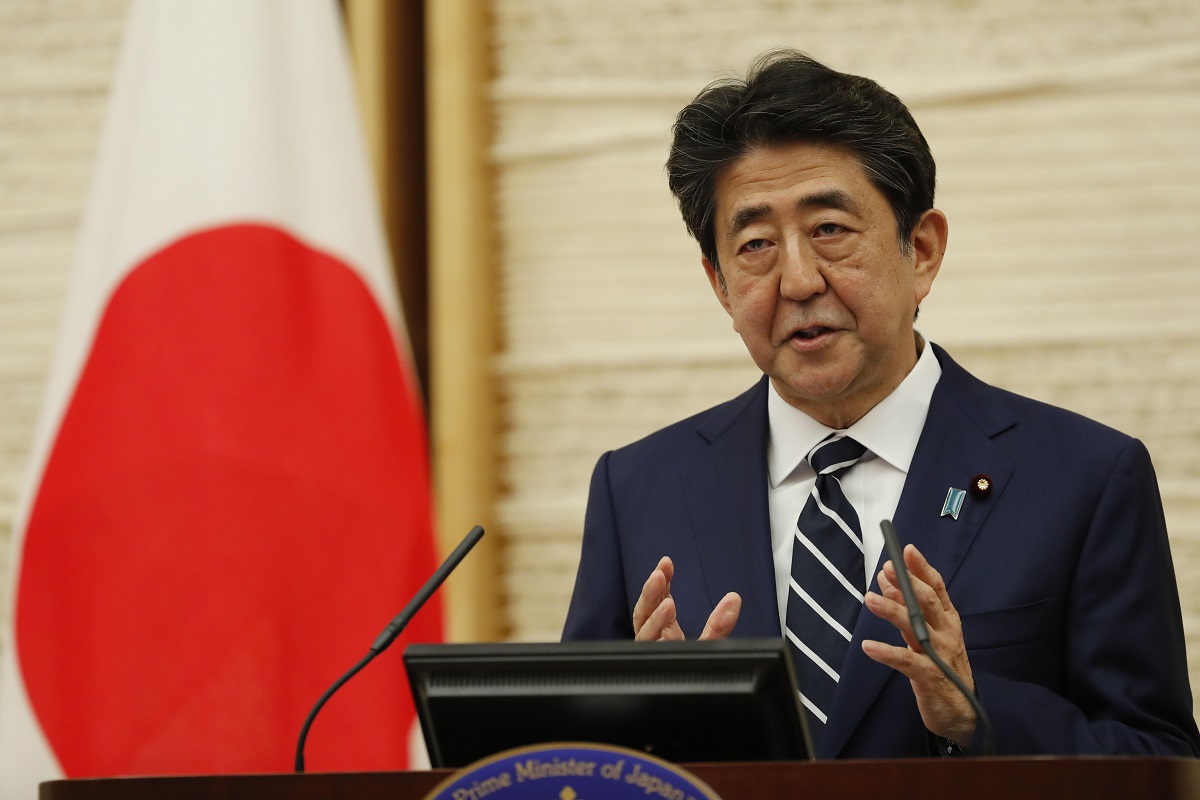Japan on Monday lifted a nationwide state of emergency over the coronavirus gradually reopening the world’s third-largest economy as government officials warned caution was still necessary to prevent another wave.
During a televised news conference, Prime Minister Shinzo Abe said “We had very stringent criteria for lifting the state of emergency. We have judged that we have met this”.
Advertisement
As compare to the hard-hit areas in Europe, the United States, Russia and Brazil, Japan has been spared the worst of the pandemic.
In April, Abe declared a state of emergency for Tokyo and six other regions — later expanding it to cover the entire nation.
Businesses and schools were urged to shut and people were asked to remain home, but Japan’s lockdown was far softer than in other parts of the world and there was no punishment for those flouting the rules.
The number of new infections has fallen from a peak of around 700 per day to just a few dozen nationally.
The emergency was lifted for much of the country last week, but the government opted to wait before removing the measures in the capital and surrounding areas, as well as hard-hit northern Hokkaido.
Abe lauded Japan’s success in flattening the curve, saying the country “was able to show the strength of the so-called Japan model”.
The Prime Minister also warned that people would have to adapt to a “new normal” and continue to avoid the “three Cs” — closed spaces, crowded places and close contact.
“If we lower our guard, the infection will spread very rapidly… we need to be vigilant,”
“We need to create a new lifestyle; from now on we need to change our way of thinking”, Abe further added.
Japan has come under fire for a relatively low level of testing with around 270,000 carried out — the lowest per capita rate in the group of seven advanced economies, according to Worldometer.
Japan’s state of emergency was significantly less restrictive than measures seen in parts of Europe and the United States.
It allowed governors to urge people stay at home and called on businesses to stay shut. But officials cannot compel citizens to comply, and there were no punishments for those who failed to do so.
Abe performed a rare U-turn on the cash handouts — initially announcing an entirely different policy — and is seen to have bungled another signature move to distribute masks to every household, which attracted widespread mockery.
Japan has reported 16,581 coronavirus cases, while 830 people have died and 13, 612 have been recovered.
Meanwhile, globally, 5,588,356 people have been infected by coronavirus so far, and the total number of deaths from the disease now stands at 347,873, according to Worldometer.
(With inputs from agency)









